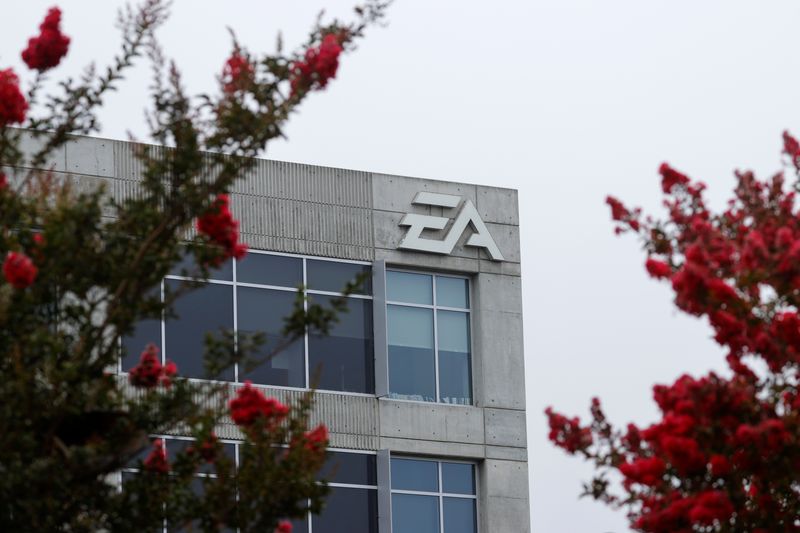Electronic Arts forecasts upbeat second-quarter bookings on ‘College Football’ strength

By Zaheer Kachwala
(Reuters) -Videogame publisher Electronic Arts (NASDAQ:) forecast second-quarter bookings above analysts’ expectations on Tuesday, citing robust sales of its popular titles such as “EA FC 24”.
EA’s optimistic forecast suggests the firm is benefiting from increased spending on its popular sports games like the newly released “EA Sports College Football 25”, indicating a potential rebound in the gaming industry after a prolonged downturn.
EA has made significant investments in reviving its college football franchise after a decade-long break as it looks to drive bookings growth amidst intense competition from publishers such as Take-Two (NASDAQ:) Interactive, Ubisoft, and Roblox.
Based on engagement trends in the week following its release, “College Football 25” is expected to outsell popular American football video game “Madden” and surpass the sales of Take-Two’s “NBA 2K”, according to analysts at TD Cowen.
“College Football sold around 5 million early in the quarter, and it is likely to sell 7 million or more this quarter and likely as many as 8 to 9 million lifetime. That’s very good, and sets up a big season for Madden NFL,” said Wedbush Securities analyst Michael Pachter.
When asked about possible cannibalization within the genre, EA executives said on a conference call that the new college football title is expected to complement the “Madden NFL” series.
Executives also said that they did not expect the Hollywood video game performers strike to have any significant short term impact on EA, and they do not anticipate any near-term disruption to games currently in development.
EA forecast second-quarter bookings in a range of $1.95 billion to $2.05 billion, the midpoint of which is above analysts’ average estimate of $1.95 billion, according to LSEG data.

Bookings for the quarter came in at $1.26 billion, missing estimates of $1.29 billion.
The company earned $1.04 per share, compared with $1.47 per share a year ago, and left its forecast for full-year bookings unchanged.





